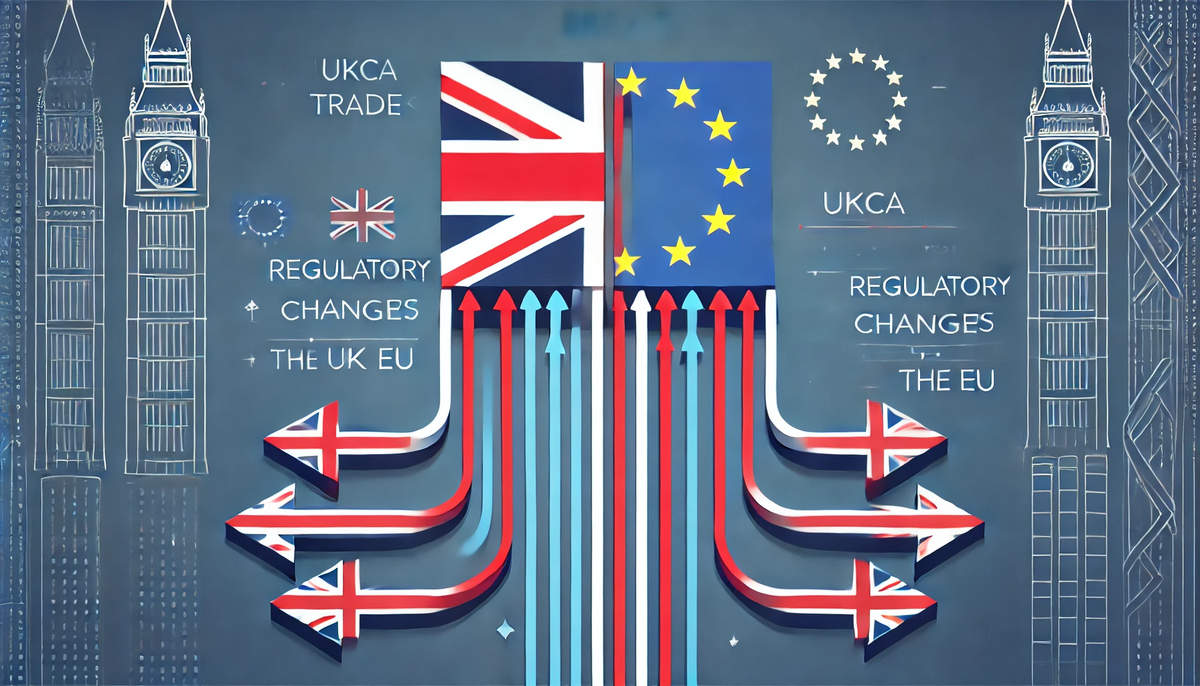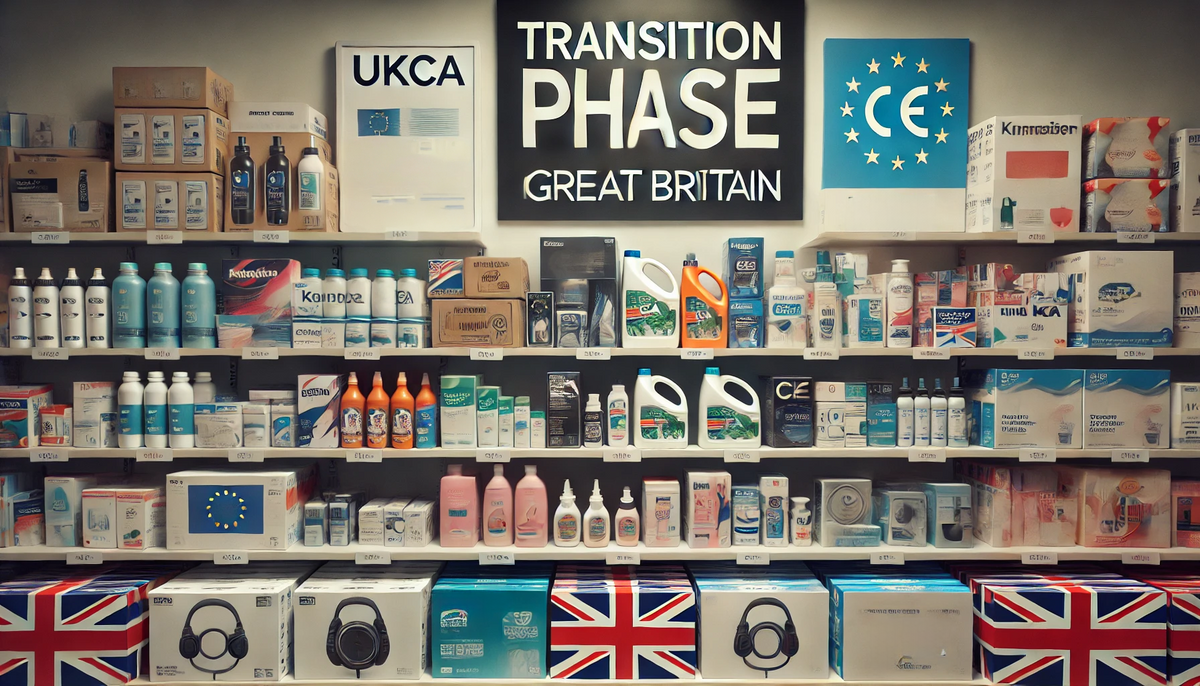
The transition from the EU’s CE marking to the UK’s new UKCA (UK Conformity Assessed) marking is a significant regulatory shift following Brexit. For businesses importing or manufacturing goods in the UK, understanding and complying with the UKCA marking requirements is essential to maintain market access and avoid penalties.
The deadline for full implementation is 1st January 2025, making it crucial for businesses, particularly those dealing with consumer products, to begin preparing now.

What is the UKCA Marking?
The UKCA marking is the UK’s post-Brexit replacement for the CE marking. Before Brexit, the CE marking was a certification used across the European Economic Area (EEA) to indicate that products complied with EU safety, health, and environmental protection standards. It was a requirement for many products, including electronics, machinery, medical devices, and construction materials, allowing free movement across the European single market.
However, following the UK’s departure from the EU, the government introduced the UKCA marking to create its own regulatory framework. This marking will be mandatory for most goods sold within Great Britain (England, Scotland, and Wales) that previously required CE marking. It applies to goods produced in the UK as well as those imported from other countries, including the EU.

Why is UKCA Important?
For businesses operating in the UK, the UKCA marking is more than just a legal requirement—it is a critical tool to demonstrate product compliance with UK regulations. Non-compliance with UKCA marking can lead to fines, legal penalties, and even the removal of products from the market. For those importing goods from the EU, this is especially important, as the CE marking will no longer be accepted in Great Britain after the 2025 deadline. Businesses must ensure that their products meet UK regulatory standards and are appropriately marked with UKCA.
One key point to note is that while the UKCA marking is required for Great Britain, the CE marking will continue to be recognised in Northern Ireland, which remains aligned with certain EU rules under the Northern Ireland Protocol. This means that businesses selling goods in both Great Britain and Northern Ireland may need to comply with both UKCA and CE marking requirements.
Key Actions for CTA Members
For members of the Cannabis Trades Association (CTA), particularly those importing or manufacturing consumer products such as wellness devices, packaging, or equipment, it is critical to ensure compliance with UKCA marking requirements. Here are the steps members should consider:
- Audit Your Products: Review your product range to identify which items previously required CE marking and will now need UKCA certification. This applies to a wide range of goods, from industrial hemp processing equipment to wellness products containing CBD.
- Update Product Documentation: Ensure that all technical documentation is updated to meet UKCA standards. This includes product specifications, user manuals, and risk assessments. Manufacturers or importers must hold technical files to demonstrate compliance.
- Engage with Suppliers: If you are importing goods from the EU, it is essential to communicate with your suppliers to confirm whether they are planning to comply with UKCA marking or if you will need to take responsibility for product compliance.
- Affix the UKCA Marking: From 1st January 2025, products sold in Great Britain must have the UKCA marking visible on the product, packaging, or accompanying documentation. In some cases, products can display both CE and UKCA markings, but UKCA will be the priority for Great Britain.
- Work with Compliance Experts: Navigating the regulatory changes can be complex. Consider working with compliance experts to ensure your products meet all necessary requirements and to avoid costly mistakes
UKCA Marking Guidance: Comprehensive guidance on how to meet UKCA standards and affix the marking, available at www.gov.uk/guidance/using-the-ukca-marking

Risks of Non-Compliance
Failure to comply with UKCA requirements can have severe consequences for your business. Non-compliant products may be subject to fines, legal action, or withdrawal from the market, which could significantly impact your bottom line. More importantly, failing to comply could damage your business's reputation and lead to a loss of consumer trust, especially in an industry like cannabis and wellness, where product safety and legality are critical to consumer confidence.
Final Thoughts
As the UK moves forward post-Brexit, the introduction of the UKCA marking is an important step in maintaining regulatory standards and product safety. For members of the Cannabis Trades Association, understanding and acting on these requirements is crucial to ensuring smooth business operations and continued access to the UK market. The deadline of 1st January 2025 is fast approaching, so now is the time to take action. By auditing your product lines, working with suppliers, and ensuring compliance, you can safeguard your business and maintain market access in the post-Brexit landscape.
Published - 25th November 2024





